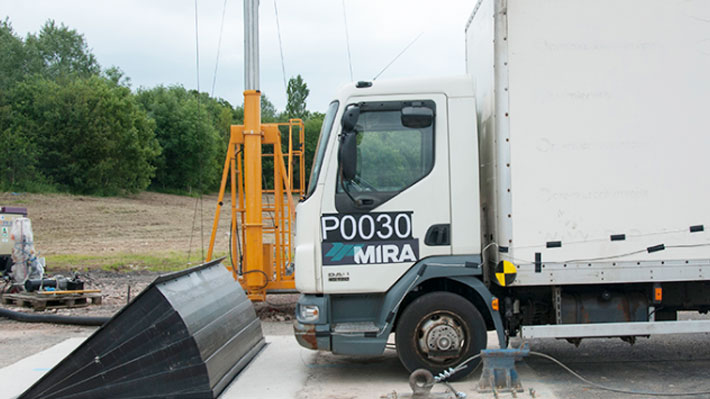
The Role of Road Blockers in Anti-Terrorism and High-Security Environments
In an increasingly uncertain world, ensuring the safety and security of citizens is of paramount importance. Terrorism remains a persistent threat, necessitating advanced security measures to protect critical infrastructures and public spaces. Road blockers, also known as vehicle barriers, play a crucial role in fortifying security and mitigating the risks posed by vehicular attacks. This article delves into the significance and functioning of road blockers in anti-terrorism efforts and high-security environments.

Understanding Road Blockers
Road blockers are physical security devices designed to prevent unauthorized vehicles from breaching a designated area. They are typically installed at entry points to critical locations such as government buildings, embassies, airports, military installations, and high-profile public spaces. The primary function of road blockers is to halt or impede the movement of vehicles, thereby thwarting potential attacks involving vehicle-borne explosives or ramming.
Types of Road Blockers
1. Automatic Rising Road Blockers
Automatic Rising Road Blockers are widely used to control vehicle access in various environments. These road blockers are automated systems that consist of a heavy-duty barrier that rises from the ground to block the passage of vehicles.
2. Crash Rated Road Blockers
Crash Rated Road Blockers are designed to withstand high-impact collisions and are crucial in providing protection against hostile vehicle attacks. These blockers are particularly significant in areas where the risk of vehicular attacks is a concern.
3. Security Road Blockers
Security Road Blockers encompass a broader category, including various types of barriers and blockers designed to enhance overall security measures in different settings. These blockers prioritize security while offering flexibility and adaptability.
Role of Road Blockers in Anti-Terrorism
Road blockers play a critical role in mitigating the risks associated with vehicular attacks, a tactic frequently employed by terrorists. Here’s an in-depth look at how road blockers contribute to anti-terrorism efforts:
Prevention of Vehicular Attacks
One of the primary purposes of road blockers is to prevent vehicles, especially those carrying explosives, from breaching secure areas. Terrorists often use vehicles as weapons, ramming them into crowded spaces to cause maximum damage. Road blockers act as a formidable barrier, disrupting such attacks and potentially saving countless lives.
Enhanced Security Layer
Integrating road blockers into a security strategy adds an additional layer of protection. These barriers create a controlled checkpoint, enabling security personnel to inspect approaching vehicles thoroughly. Any suspicious or unauthorized vehicles can be denied entry, further fortifying the security perimeter.
Deterrence Factor
Visible deployment of road blockers serves as a deterrent to potential attackers. The knowledge that a facility or area is equipped with robust physical barriers dissuades individuals or groups with malicious intent, compelling them to reconsider their plans or targets.
Controlled Access and Traffic Management
Road blockers allow for controlled access to restricted areas. Authorized vehicles can be provided with unique credentials (e.g., RFID tags) that trigger the road blockers to retract, allowing entry. This controlled access ensures that only approved vehicles can enter, reducing the risk of unauthorized vehicular intrusion.
Road Blockers in High-Security Environments
High-security environments demand top-notch measures to thwart potential threats effectively. Road blockers play a vital role in fortifying security in such settings:
Critical Infrastructure Protection
High-security environments often house critical infrastructure such as power plants, data centers, and government facilities. Road blockers are instrumental in safeguarding these sites by denying unauthorized vehicular access, preventing any attempt to disrupt essential services or steal sensitive information.
Airport Security
Airports are prime targets for terrorist activities due to their high foot traffic and symbolic significance. Deploying road blockers at airport entrances and sensitive areas acts as a formidable deterrent against vehicle-based attacks, bolstering the overall security posture.
Military Installations
Military bases and installations are high-priority targets for adversaries seeking to undermine a nation’s defense capabilities. Road blockers are employed to secure perimeters, control access, and thwart potential threats, ensuring the safety and integrity of military assets and personnel.
Conclusion
The importance of road blockers in anti-terrorism and high-security environments cannot be overstated in the face of evolving security threats. These physical barriers act as a formidable line of defence, preventing vehicular attacks and improving security. Road blockers continue to evolve as technology advances, offering more sophisticated features and greater dependability in ensuring the safety of individuals, critical infrastructure, and public spaces. Accepting and implementing road blockers as part of security strategies is a wise step towards creating a safer and more secure world.